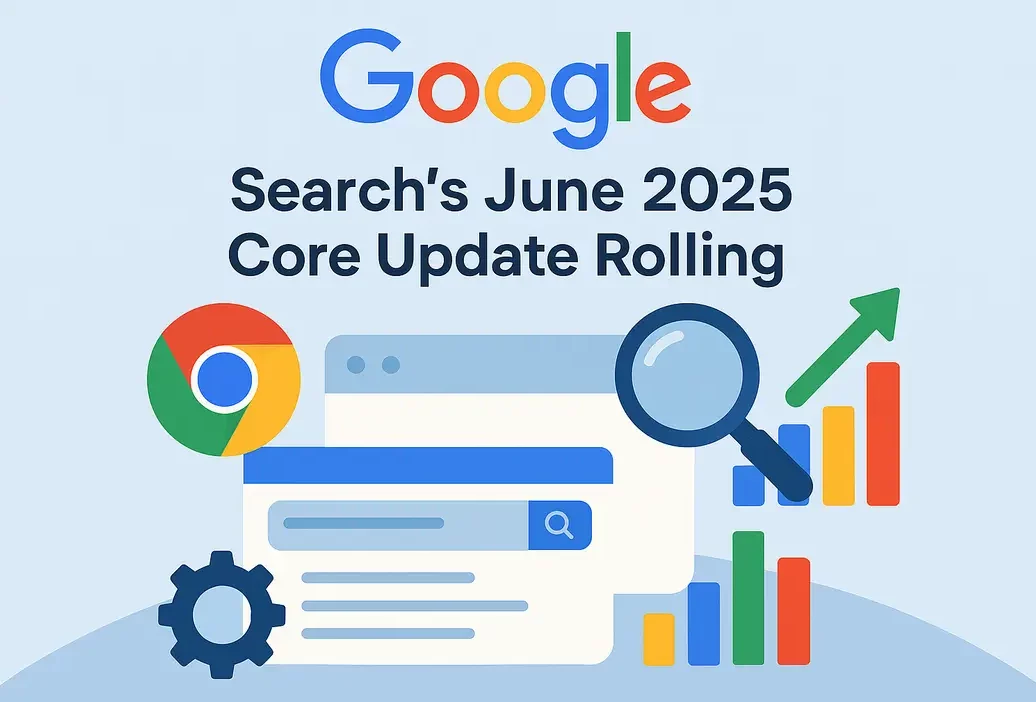
Google Search’s June 2025 Core Update: What You Need to Know
Google has officially launched its June 2025 Core Update, marking the second broad core algorithm update of the year. As per Google’s official statement, this rollout began on July 2, 2025, and is expected to take up to three weeks to fully complete. This comes just three months after the March 2025 core update, reflecting Google’s continued pace of algorithmic evolution in line with its AI-first and user-centric vision for Search.
What is the June 2025 Core Update?
Like all core updates, the June 2025 Core Update involves significant changes to Google’s search ranking systems. While Google did not specify the exact algorithmic adjustments, core updates typically affect how Google assesses content quality, intent alignment, helpfulness, and topical authority.
Here’s what Google officially posted:
“Today we released the June 2025 core update. We’ll update our ranking release history page when the rollout is complete.”
Timeline of Recent Core Updates
To put this into perspective, here is a quick recap of recent Google core updates:
- March 2025 Core Update: Mar. 13 – Mar. 27
- December 2024 Core Update: Dec. 12 – Dec. 18
- November 2024 Core Update: Nov. 11 – Dec. 5
- August 2024 Core Update: Aug. 15 – Sept. 3
- March 2024 Core Update: Mar. 5 – Apr. 19 (largest ever)
- November 2023 Core Update: Nov. 2 – Nov. 28
- October 2023 Core Update: Oct. 5 – Oct. 19
- August 2023 Core Update: Aug. 22 – Sept. 7
- March 2023 Core Update: Mar. 15 – Mar. 28
What If Your Site Was Affected?
Google did not release any new guidance specific to the June or March 2025 updates. However, their standing advice still applies:
- No quick fixes: A drop in rankings doesn’t mean your content is “bad” or violates Google’s guidelines.
- Focus on content quality: Improve E-E-A-T (Experience, Expertise, Authoritativeness, Trustworthiness).
- People-first content: Google has repeatedly emphasized writing helpful, reliable content made for humans — not just to rank in search engines.
- Self-audit your pages: Google recommends reviewing your content against their helpful content and quality guidelines.
From Google’s previous statement:
“There’s nothing new or special that creators need to do for this update as long as they’ve been making satisfying content meant for people.”
Observations
While Google hasn’t provided specifics, early chatter among SEO professionals suggests a possible tightening around:
- Content originality and information gain over regurgitated AI content.
- Increased attention to first-hand experience signals and authorship clarity.
- Better differentiation of topical depth vs. keyword stuffing.
- Reinforcement of SGE (Search Generative Experience) integration and AI Overviews compliance.
- Improvements in intent interpretation and query matching via neural embeddings.
Why This Matters
Core updates can significantly impact your organic visibility, for better or worse. For brands, businesses, and publishers, the implications go beyond traffic — they can affect revenue, customer acquisition, and visibility in AI Overviews.
Sites that have embraced Google’s vision of “people-first, AI-friendly” content — aligning with Quality Rater Guidelines, SGE compliance, semantic topic clustering, and real author bios — are more likely to see benefits.
A Nod to the Creator Community?
It’s worth asking whether this update reflects any outcomes from Google’s recent creator-focused meetings and feedback sessions. For months, Google has reportedly been in conversation with creators, publishers, and affiliates — perhaps this update starts to reflect some of that input?
Either way, quality, experience-rich, intent-aligned content remains the long-term winner.
Helpful Resources
Author
Umair Khalid is a multi-disciplinary digital strategist, SEO technologist, and AI marketing advisor. He combines algorithmic knowledge, content architecture, and growth frameworks to help brands dominate in the age of AI-powered search. Explore more at umairkhalid.com